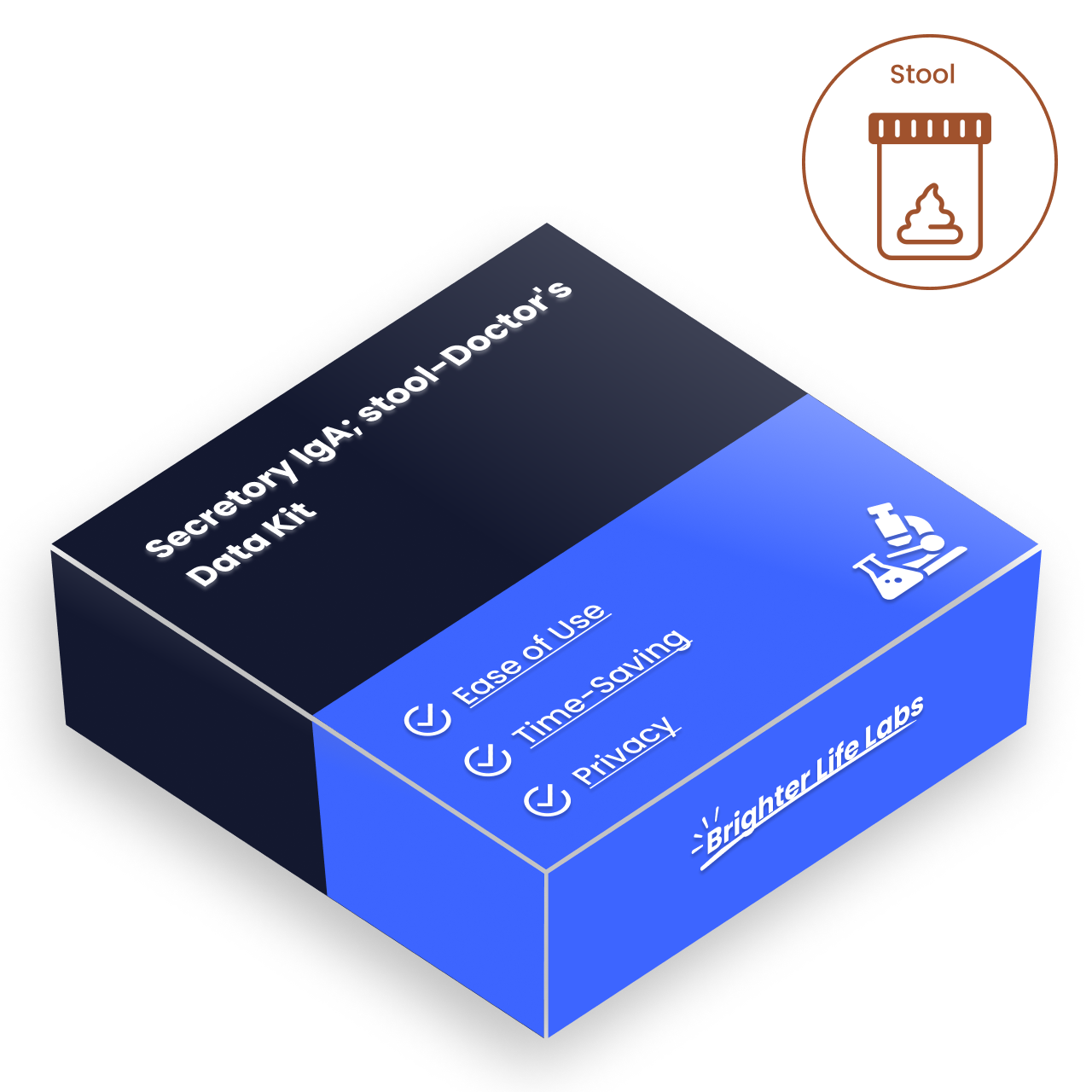1
/
of
1
Doctor's Data
Secretory IgA; stool-Doctor's Data Kit
Secretory IgA; stool-Doctor's Data Kit
Regular price
$175.00 USD
Regular price
Sale price
$175.00 USD
Unit price
/
per
Shipping calculated at checkout.
Couldn't load pickup availability
Note: This is a home collection test kit that will be mailed to you.
Fasting Required:
No
Lab:
Doctor's Data
Specimen:
Stool
Results:
Average processing time 7-10 business days
Note: Result turnaround times are an estimate and are not guaranteed. Our reference lab may need additional time due to weather, holidays, confirmation/repeat testing, or equipment maintenance.
Special Instructions:
If you are taking antifungal or antibiotic medications, please finish the course of medication, and then wait three days before starting this collection. Please refrain from taking digestive enzymes, antacids, and aspirin for two days prior to and during the specimen collection, unless otherwise instructed by your physician. Never discontinue prescription medications without first consulting your physician
Description:
Immunological activity in the gastrointestinal tract can be assessed using secretory immunoglobulin A (sIgA). Secretory IgA is the predominant antibody, or immune protein the body manufactures and releases in external secretions such as saliva, tears, and milk. It is also transported through the epithelial cells that line the intestines out into the lumen. Secretory IgA represents the first line of defense of the GI mucosa and is central to the normal function of the GI tract as an immune barrier. As the principal immunoglobulin isotype present in mucosal secretions, sIgA plays an important role in controlling intestinal milieu which is constantly presented with potentially harmful antigens such as pathogenic bacteria, parasites, yeast, viruses, abnormal cell antigens, and allergenic proteins. Secretory IgA antibodies exert their function by binding to antigenic epitopes on the invading microorganism, limiting their mobility and adhesion to the epithelium of the mucus membrane. This prevents the antigens from reaching systemic circulation and allowing them to be excreted directly in the feces.
Share


